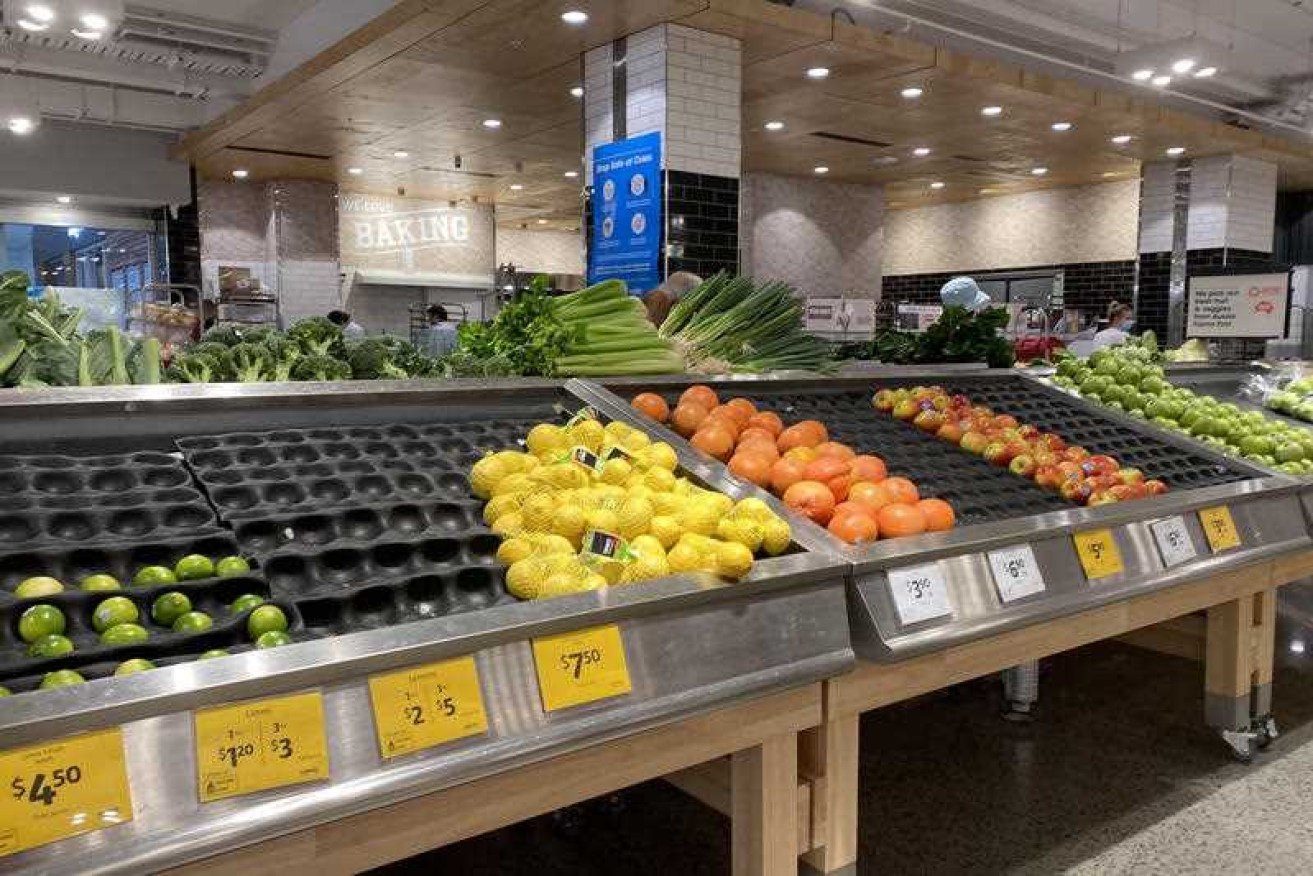Critical worker isolation under review


The head of Woolworths has assured customers they won't go hungry during supply chain problems. Photo: AAP
Australian shoppers and diners face weeks more supply shortages as the country heads towards its expected peak in Omicron cases in late January or early February.
Woolworths’ boss sought to quell concerns about shortages of food and other essentials as supermarket shelves are left bare by supply chain issues, massive shortfalls in staff due to the country’s exploding COVID case numbers, and renewed waves of supercharged demand.
Woolies chief executive Brad Banducci said customers wouldn’t be left hungry but some concessions were needed due to increased demand.
“There is enough product in our supply chain to meet the needs of our customers [but] it might not always be their favourite brand unfortunately,” he told the ABC on Monday.
Mr Banducci said supply issues would likely last for the next two to three weeks as the country comes to the forecast peak of its Omicron outbreak. He noted this was a conservative estimate, with his team predicting supply would meet demand by the end of the week.
Tweet from @FoodbankVic
KFC has also confirmed the supply issues have hit its outlets, with some menu items off-limits as a result.
“Some of our restaurants will be offering a reduced menu,” a spokesperson said on Monday.
“We’re sorry for any issues this causes our customers – we’re doing everything we can to help our suppliers get back on track.”
NSW, Victoria, Queensland, Tasmania and the Northern Territory have moved to allow vaccinated and asymptomatic logistics workers who are close contacts out of isolation, to help ease the shortfalls.
Prime Minister Scott Morrison said the change was being examined by national cabinet.
Woolworths and rival Coles have told federal health experts they are down up to half of their staff due to the outbreak.
“It’s huge, particularly in the distribution centres. They cannot operate in those sort of circumstances,” Mr Morrison said.
“We asked them specifically about whether that’s because people are contacts or whether they’re actually sick. It’s a mixture and it’s patchy around the country. But that’s the sort of issues that we’re dealing with and we need to move fast to take these risk-based approaches to deal with that issue.”
Mr Morrison said it wasn’t practical to have critical staff locked up as supermarket shelves were stripped bare.
“You can just shut everything down and lock everybody away and then there will be no food on the shelves and there will be no children getting taught and there will be no one providing healthcare,” he said.
“That’s obviously not a practical way to move forward.”
Tweet from @NinaGray3
Assistant Treasurer Michael Sukkar said measures easing quarantine requirements for close contacts were sensible and proportionate as states battled supply shortages.
“It means fewer workers will need to isolate. That will mean those resources will not be taken away and that will have a positive benefit,” he told Sky News.
But the changes for asymptomatic and vaccinated logistics workers who are designated as close contacts have been branded as reckless by the Transport Workers Union.
“Close contacts are more likely now than ever to have the virus, because of Omicron and definition of close contacts,” TWU national secretary Michael Kaine told the ABC.
“The concern is they will be required to work. That means you have people [who are] the most likely to have the virus in workplaces.
“There is a real danger here that this might make matters worse.”
When asked about alternatives, such as decreasing the isolation time for close contacts in critical industries as the US has done, Mr Morrison said no measures were set and forget.
“But they’re always set for Australia,” he said.
“We always look at what they’re doing, but that doesn’t mean that it works here. Other countries have different experiences, different health systems.”
The next step will entail the aviation industry and more distribution activities.
The Australian Retailers Association said access to rapid tests needed to be a priority for essential frontline retail and distribution centre workers so work could be undertaken safely.
Mr Morrison said the government continued to work with businesses about access to rapid tests.
“Many of them are doing that already and accessing supplies … [but] I’ll do the consultation before pre-judging any of the actions that they require,” he said.
He stressed the exempted workers were not in public-facing roles.
“As the case numbers continue to rise, the volume of cases will of course have an inevitable impact on the workforce and so we are looking to maximise those who can remain in the workforce.
“We’ll take the medical advice on that and try to get the balance right.”
-with AAP








